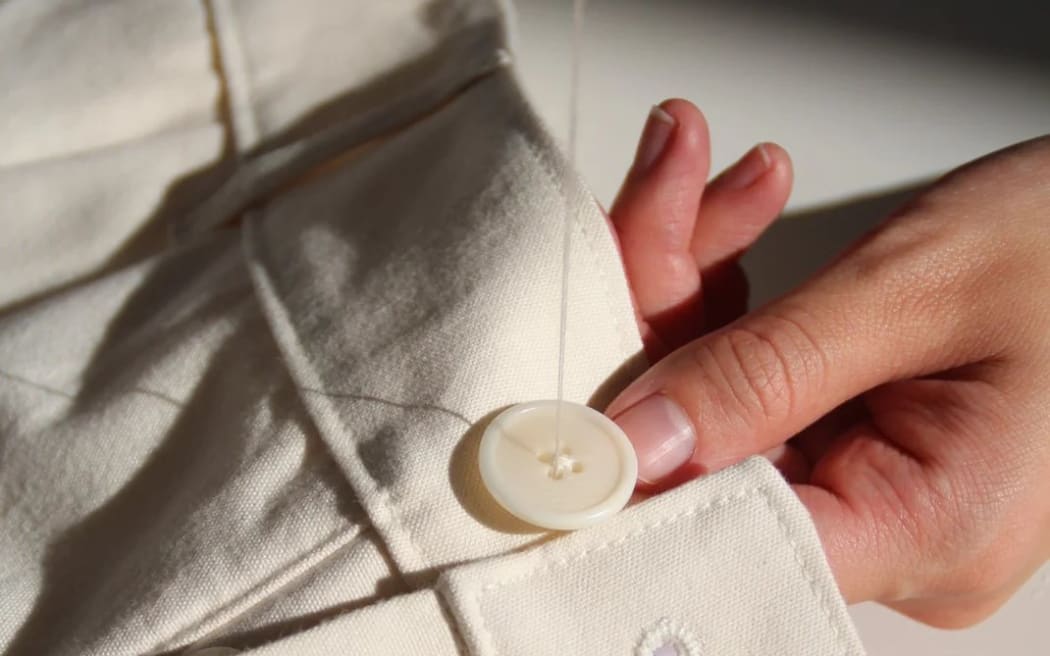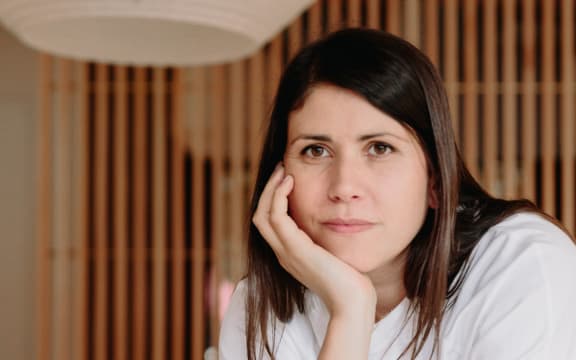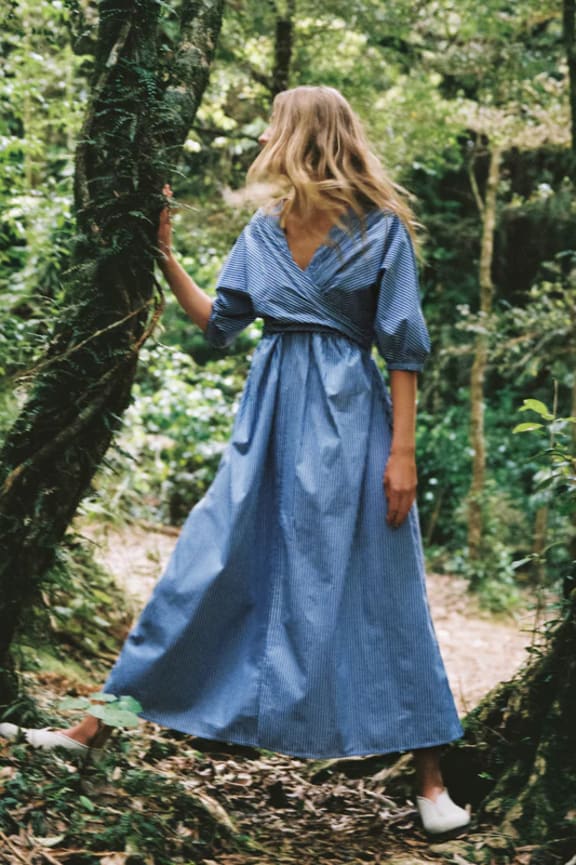Ever considered how much plastic is in the clothes you wear? Gosia Piatek has. She's spent the last 17 years trying to eliminate plastic from Kowtow, the clothing label she founded in Wellington in 2006.
Now, thanks to her efforts, Kowtow's garments are made with 100 percent certified Fairtrade cotton - traced from seed-to-garment.

Wellington based Kowtow clothing label has become 100% plastic free. Photo: Kowtow
The ambition for the business is “full circularity,” Piatek told Saturday Morning, and she wants others to follow suit.
Most clothing, even if it’s made with natural fibre, is stitched using plastic thread, she says.
“Prior to this year, we had been stitching with a synthetic thread, which is petroleum based, which is plastic, we know plastic doesn't break down. It just goes into micro particles.
“So, thinking about circularity, you have to cut the seams away, and you have to cut all the little plastic components out before you can shred the cotton to remake it into a new yarn, which is quite a complicated process.”

Gosia Piatek, Kowtow founder. Photo:
Kowtow has been working with its supplier in India to develop a strong cotton thread, she says.
“It's not as strong, so we've had to work with our suppliers. In India, we work with two factories, we've worked with one of them for 17 years and one for 10 years.
“So, we've got a really close relationship with them, and they've had to actually physically slow down the stitching of the garments. Because the thread does break in the machine.”
By doing so, in just the brand’s latest collection, they’ve replaced 10 million meters of synthetic thread with an organic cotton thread, she says.
“That's a quarter of the way around the world.”

Kowtow's clothes are entirely free of synthetic components. Photo: Kowtow
The company has a philosophy of reductive design; there is just one label for every garment, swing tags are made from factory off cuts and zips are replaced with a better option called tacks. Even the buttons are derived from shell.
“Our buttons are shell buttons from a waste product from the Japanese fishing industry. So, we've got these beautiful shell buttons, and what a difference, if you lose a button and it ends up in the sea, it doesn't matter. It will just turn into sand. It's a completely different to a plastic button.”
The company has replaced elastic, which it uses extensively, with cotton coated rubber.
In the last 17 years the brand has gone global, she says.
“We have retailers all around the world, from Iceland to New York to Australia and back home here to Aotearoa.”
The company shares its knowledge openly, Piatek says, to encourage others to follow the Kowtow lead.
“Open sourcing encourages not just young designers coming into fashion school, but also existing industry to go hey, there's no excuse.
“Now this is where we get the organic, natural rubber elastic from, this is where we source our shell buttons. So please come on to our website and have a look and have a look at the information and we’ll give you the name of the supplier.”

